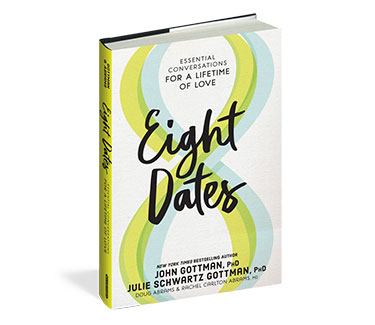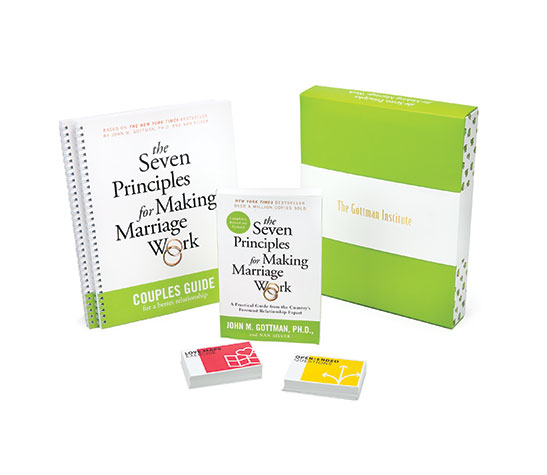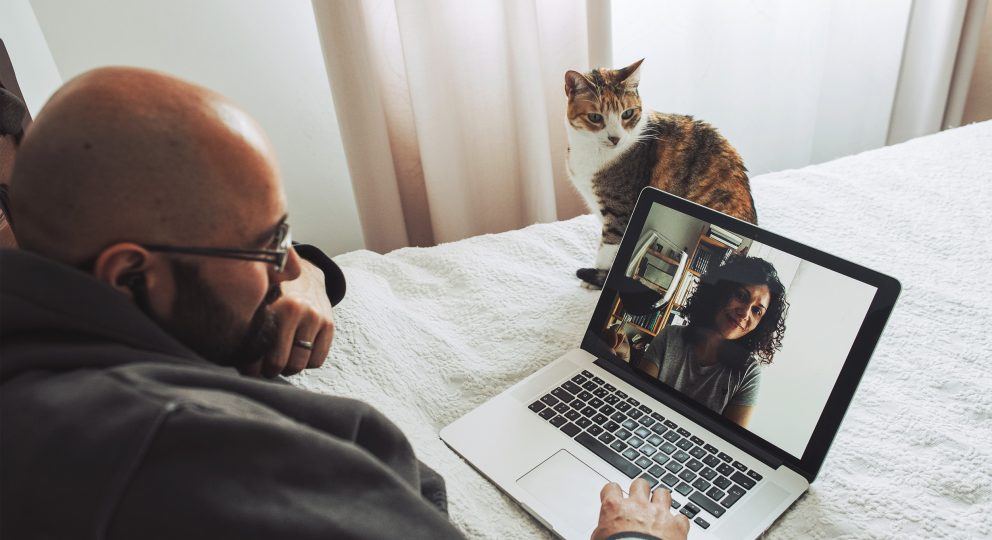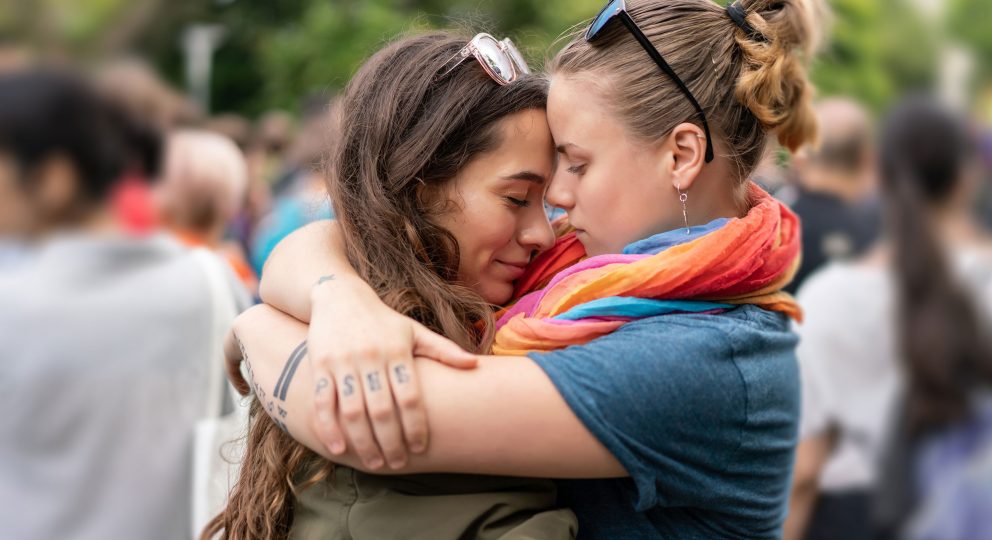By Dedeker Winston
Editor’s Note: We’ve been studying relationships for the last four decades, but we still have so much to learn. Through the individual stories and experiences shared in Real Relationships, we aim to paint a more realistic picture of love in the world today. The views, thoughts, and opinions expressed in this article belong solely to the author and are not necessarily based on research conducted by The Gottman Institute.
The day I turned 30, I felt more loved than any other day in my life. I was on an extended stay in Tokyo with my partner, Jase. For weeks, he had been teasing a surprise. He asked repeated questions about my work schedule and asked me to keep certain times and dates open, without giving the reason. When we were out, he’d occasionally duck to the side to urgently type something on his phone, being careful to keep the screen out of my line of sight.
On the morning of my birthday, I was wrapping up a work call when I got a text from Jase, asking me to meet him at the cafe next door. When I walked in the door, I spotted Jase at a table in the back. The other person sitting at the table turned over his shoulder to look at me. It was my other partner, Alex, who had just arrived after a long red-eye flight. I was so overcome with emotion that I literally pulled a 180—I turned on my heel and walked out of the cafe to avoid crying in front of strangers. Alex still teases me about it.
We had breakfast in the cafe together, Alex and Jase sharing their strategies for throwing me off the scent for weeks. We spent the rest of the day at the Ghibli museum, and in the evening, Jase headed off to stay at a friend’s place, leaving Alex and me with the apartment to ourselves for a few days—another part of the secretly coordinated plan.
I’ve been practicing consensual non-monogamy (CNM) for over 10 years. This wasn’t the first time Jase and Alex had met each other. And this wasn’t my first experience being in physical proximity to more than one partner at the same time. But there was something about this particular experience that caused me to reflect on this journey that I’ve been on for so many years, the journey that led me to this positive moment of feeling so intensely loved and cared for.
For all its positive moments, my journey with CNM has had more than a fair share of painful ones. The early days were rough. My first attempt at opening up what had been, up to that point, a strictly monogamous relationship was awkward and agonizing. My desire to explore non-monogamy often conflicted with my aversion to vulnerability. I didn’t want to admit to that desire to anyone, much less my live-in partner. It didn’t take long for that relationship to crumble, its already shaky foundation further eroded by my mishandling.
And yet, the breakup didn’t dampen my resolve. Instead, my conviction grew. As much as the experience had totally sucked, for the first time in my life, I felt like I wasn’t swimming against the stream. It was a sensation that couldn’t be un-felt. I knew that non-monogamy was the right choice for me. I just had to figure out how to actually make it work.
My next few attempts weren’t too different from the first. My conviction, as it turns out, wasn’t enough to sustain me when the rubber met the road. I often feared that a new partner might reject me if they truly understood the scope of what I wanted, so I’d procrastinate on discussing the subject at all and sugarcoat it when I did. My fears intensified after many potential partners tried to talk me out of it—suggesting that it was a phase, or perhaps that it had to do with childhood trauma. One man even told me that I was just too chicken to be monogamous.
I spent years plagued by doubts. What if everyone is right? What if this can all be solved by allowing myself a brief “slutty phase,” followed by a visit to the therapist? What if I just need to find the right person, then this desire will magically evaporate? What if I’m just broken? There was only one thing that I didn’t feel much doubt about: I did feel like a chicken. Unable to commit to monogamy, and too fearful to take ownership of my desire for non-monogamy, I felt like less than a chicken. Chicken excrement.
Change came slowly for me. After enough times breaking the hearts of others and myself, I started putting the word “polyamorous” on my dating profiles. I started making connections with other people who used the same label, who didn’t get scared off the moment I mentioned other partners. Dating turned into long-term relationships—relationships where I felt loved and seen rather than tolerated and misunderstood.
After enough time, the broken-shameful-chicken excrement feelings faded. There were still many hard lessons and uncomfortable brushes with my own jealousy and anxieties, as well as the jealousy and anxieties of others. More than once my insecurities ran the show—going cold when a partner went on a date with someone I perceived to be hotter, thinner, or smarter than me. I spent several years clawing at different romantic partners, insisting that they tell me I was their number one, the primary, the queen bee. I was convinced that having such a title would make me impervious to discomfort. (It didn’t.) I had to undergo many trials by fire in order to figure out how to actually speak honestly to someone I cared about. But even the frequency of these roadblocks decreased over time, settling into the most surprising feeling of all: normalcy.
Though markedly different from the outside, the day-to-day functioning of my relationships feels acutely normal. When I’m living with Alex, there are day trips, inside jokes, and loads of laundry. During the times I’m living with Jase, we cook breakfast together, argue about the dishes, and collapse into bed after 12-hour work days. Holidays are negotiated in much the same way that blended families hammer out their schedules. There are still flare-ups of jealousy, though these days they feel more like a quick spark than a destructive blaze. At least once every few months, I’m approached by a journalist or a producer, someone really keen to create the shocking exposé of what really goes on in polyamorous relationships. I’ve gotten used to the look of disappointment that shows up when they realize it’s not all group sex and new partners every night.
For all the normalcy, that sex-fest stereotype sure has some staying power. If I choose to talk openly about having multiple partners, it can invite any number of reactions. Total strangers will demand I answer questions about the details of my sexual practices and preferences. More hostile responses include name-calling, conjecture about my STI status, or comparing me to that womanizing jerk they met on Tinder. Some people want to give a hi-five and a “Get it, girl!” before reacting with shock and pity when they learn that my partners also date other people. Some desperately want to know which one is my “real partner,” or at least which partner is my favorite. On my bad days, I counter by asking the person which of their children is their favorite. You’d be surprised how many people feel the need to launch an unexpectedly energetic defense of having a favorite child.
These conversations, while uncomfortable, usually merit an eye roll at most. It’s harder when it leaves the realm of conversation. I’ve been let go from a job for answering honest questions about my relationships. I’ve had non-monogamous friends refused housing and cut off from their families. Nearly every polyamorous woman I know has received slut-shaming messages on dating sites that include rape threats or death threats. This level of social fallout is certainly not unique to non-monogamous people, but an unfortunate mainstay for many whose ways of loving and living do not align with mainstream values. I recognize that it could be much, much worse.
It starts to wear on me after a while, though. No one is being coerced. No laws are being broken. There are and always will be the bad apples—people who lie and manipulate, who pressure and control their partners, who make the rest of us look bad. But from my understanding, monogamy isn’t exactly the preventative cure that stops people from using and abusing their partner. With each passing year, I grow more baffled that a life that feels so peaceful and content to me could be so nauseating to others.
This journey has brought a lot of people into my life. It’s not just multiple partners, but all the people attached to each partner. It’s a web of other partners, family members, old flames, new crushes, exes, and close-knit friends. It’s never about just the person alone, but the interconnected network of other people that help to shape them. And that network interacts with my own, making a hodge-podge chosen family. It’s an unexpected gift for an introvert like me.
Just a few weeks ago, Jase had to go in for outpatient surgery. It wasn’t much of a question that both myself and his partner Caitlin would come along for moral support. There were looks, but no one asked any questions, to my relief. Once we were back at home with Jase comfortably installed on the couch, Caitlin and I whipped out our laptops and settled into productivity. The rest of the afternoon was quiet, only interrupted by an occasional chat about plans later that evening, or one of us getting up to pass a bottle of painkillers Jase’s way. By all accounts, it was a mundane scene, but it was the sort of scene I wish those producers and journalists could see.
I wish that it was easier to show what non-monogamy can be at its best: people caring for other people, people creating the family that they need, people being human, people being normal. People getting the chance to feel more loved than they ever have before. It’s what any relationship can be at its best.
Sign up for the Love Notes Newsletter
Get the latest on relationships, parenting, therapy and more from the experts at The Gottman Institute, plus get a FREE download every month!
.









